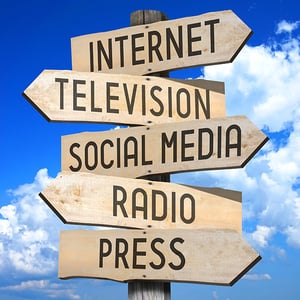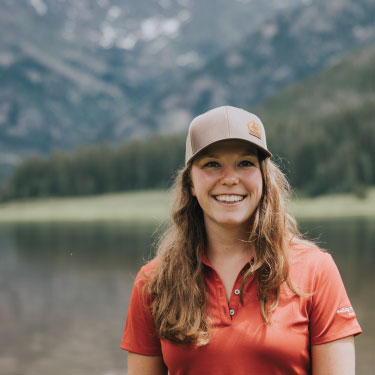 A simple Google search for any topic related to climate change will yield a variety of results. This side says one thing, while the other completely refutes it. It can be difficult, when self-educating about climate change, to know where to look and who to trust. New studies are produced faster than ever before making information ever shifting. Adding to the mess, much of what we know about climate change, greenhouse gas mitigation strategies, new technologies, and more is constantly updating and changing as we learn more about this impeding crisis, making it harder than ever to know what’s real and what’s fake-news.
A simple Google search for any topic related to climate change will yield a variety of results. This side says one thing, while the other completely refutes it. It can be difficult, when self-educating about climate change, to know where to look and who to trust. New studies are produced faster than ever before making information ever shifting. Adding to the mess, much of what we know about climate change, greenhouse gas mitigation strategies, new technologies, and more is constantly updating and changing as we learn more about this impeding crisis, making it harder than ever to know what’s real and what’s fake-news.
Much of the confusion starts is in research misrepresentation, which happens consistently. Research and testing of various hypothesis or new technologies happen quicker than ever before and forcing scientists to share “complete answers” without being allowed the time to form them. In the peer reviewed scientific journal written by J. Loannidis in 2005, he states “There is increasing concern that most current published research findings are false.” Several factors lead to this include lack of peer review, pressure to perform, corrupt financial backing, limited timelines, biased research, and more.
Recently, the subject of peer review has been debated due to the freedom of media and the internet. Today anyone can publish a study and the reader then has to decide whether or not to believe it. This has created a turbulent time in media of click-bait topics and popular articles that get shared millions of times without formal review or verification. Peer review, in this era is essential in the process of validity so the reader does not have to decide what is true and what is false. Frank Gannon from EMBO Journal said, “In fact, most scientists will not consider a scientific pronouncement as valid unless it has been approved by this anonymous process, known as peer review.” In a harmless but humorous example of the lack of peer review, headlines in 2015 around the world said that research has shown that eating chocolate daily will help you lose weight. NPR reported that “in a story for io9 that's gone viral […] John Bohannon, a science journalist who also has a Ph.D., lays out how he carried out an elaborate hoax to expose just how easily bad nutrition science gets disseminated in the mainstream media.”
With all of the factors fighting the process of scientific study, you may ask yourself, how am I supposed to know what is true? Well, it is every reader’s job to become media literate, meaning the ability to access, analyze, evaluate, create, and act using all forms of communication.
To practice media literacy, before you share or repost ask yourself these questions:
- Who created this?
- Why did they make it?
- Who is the message for?
- What techniques are being used to make this message credible?
- What details were left out?
- Has the study been reproduced and is it sponsored?
Each of these questions is important in understanding the author’s goal. Without recognizing the author’s viewpoint, readers are unable to understand the information in the context of the author’s perspective. And remember, scientific research is shared in journals, not YouTube videos.
The men behind the world-famous research podcast, Stuff You Should Know, say that if you find a study from years ago that shared on many news sources within a few days, and see no follow-up to that article, then it was probably a fad or a quick headline. Another tip the provide for knowing if an article is bogus is to see if it could be reproduced through the methodology provided, and/or recognizing if they use a limited corrupt sample size but represent it as the majority.
To find credible sources remember to look for peer reviewed journals, research journals, and established institutions first, places like Nature, Science, Propublica, BBC, the Economist and NPR are good places to start. But it’s important to stay vigilant, even trusted news sources can be operated by biased owners. If you are finding information elsewhere remember to check on supporting documentation, look at who is sponsoring the page, and check if the information been reproduced for other studies.
This may seems like a lot of steps to simply getting your news in the morning but it’s more important now than ever given the saturation of media in news outlets. As a reader it’s important that you analyze, evaluate, and learn what news sources have done their due diligence and which sources are after the quick-click headline. By sharing real information, found through scientific process, we can continue to educate ourselves on the issues our world faces and be armed with correct information to back our arguments up.
Sources:
https://www.ncbi.nlm.nih.gov/pmc/articles/PMC1182327/
https://www.ncbi.nlm.nih.gov/pmc/articles/PMC1084042/
https://medium.com/better-marketing/how-to-become-media-literate-4f584edf5402
https://www.npr.org/sections/thesalt/2015/05/28/410313446/why-a-journalist-scammed-the-media-into-spreading-bad-chocolate-science
Stuff You Should Know Podcast; Episode “Research Tips from SYSK.” July 5, 2016







